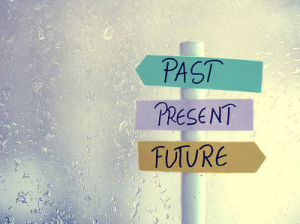 A friend recently asked me how someone might know when they may be ready to consider taking medication for emotional or psychological concerns. This is an important question and one that strikes at the heart of a complex and still emerging field of research. I first want to emphatically note that I am not a psychiatrist or medical doctor and what follows is not medical advice. What I’ve written below is information that I, personally, would want my friend to know as they think about taking medication, as well as, some considerations that I think might aid them in the process of discerning whether they feel like medication is right for them. The reasons to consider taking medication and the choice to take medication are vast and varied. By considering only a very limited number of these reasons and offering my personal thoughts on the which information I would try to communicate to a friend I have only scratched the surface on this topic. Still, hopefully my thoughts may be of benefit to someone. Read More →
A friend recently asked me how someone might know when they may be ready to consider taking medication for emotional or psychological concerns. This is an important question and one that strikes at the heart of a complex and still emerging field of research. I first want to emphatically note that I am not a psychiatrist or medical doctor and what follows is not medical advice. What I’ve written below is information that I, personally, would want my friend to know as they think about taking medication, as well as, some considerations that I think might aid them in the process of discerning whether they feel like medication is right for them. The reasons to consider taking medication and the choice to take medication are vast and varied. By considering only a very limited number of these reasons and offering my personal thoughts on the which information I would try to communicate to a friend I have only scratched the surface on this topic. Still, hopefully my thoughts may be of benefit to someone. Read More →
I hope that you fail at your New Year’s resolutions.
Admittedly, I have never been much of one for New Year’s resolutions. I suspect, if I am being honest with myself, that one of the reasons for my avoidance is the security of knowing that if I don’t make a resolution I don’t have to fail at a resolution (or experience the unpleasant feelings of guilt and defeat that accompany repeatedly forgoing exercise for a Netflix binge). Now, I do appreciate and even envy folks that devise thoughtful and creative goals for the New Year. A fella over at Verily has written about some of his previous resolutions and they are both fun and creative. Anyway, I have been inspired to try resolutions this year. They are simple: exercise five days a week for at least 45 minutes, silent prayer for 30 minutes a day, and read one new non-school related book each month.
I hope that I fail at my New Year’s resolutions.
“Rejoice! Rejoice! Emmanuel shall come to thee, O Israel.”

Theology of gratitude. Yesterday, on the last day of the “O Antiphons,” the beautiful and ancient recitations made the week before Christmas during Evening Prayer, we implored the Lord, “O Emmanuel, king and lawgiver, desire of the nations, Savior of all people: Come and set us free, Lord our God.” Well, our prayer has been heard. The Christ has come. The chorus of the popular Advent hymn enjoins us to rejoice because Emmanuel, the Savior of all people, has come and set us free. Our joy and exultation arises from this pure gratia (grace)—this undeserved gift. Derived from this notion of gratia is the word gratitude. We rejoice because we are grateful for the gift of Emmanuel, God with us—born to save us. Gratitude is the recognition of grace; it is the acknowledgment of those free and undeserving gifts that we have not earned or merited, but enjoy in our lives. Without this recognition we cannot be grateful this Christmas season, and without gratitude we cannot rejoice. Read More →
 There is a threefold dimension to the Advent season–past, present and future. Sometimes we forget that Advent is not simply a memory exercise of the Church contemplating the Christ event some 2000 years ago. Advent is also a time in which we prepare our hearts in expectation for Christ’s second coming. But, as then Joseph Cardinal Ratzinger noted, there is also a current reality to Advent, a realization in the midst of our own sin and darkness (and that of the whole world) of the extent to which we still are unredeemed and desperately in need of taking into our lives daily Jesus’s grace and love.
There is a threefold dimension to the Advent season–past, present and future. Sometimes we forget that Advent is not simply a memory exercise of the Church contemplating the Christ event some 2000 years ago. Advent is also a time in which we prepare our hearts in expectation for Christ’s second coming. But, as then Joseph Cardinal Ratzinger noted, there is also a current reality to Advent, a realization in the midst of our own sin and darkness (and that of the whole world) of the extent to which we still are unredeemed and desperately in need of taking into our lives daily Jesus’s grace and love.
It’s hard to wait well. Waiting for this daily deepening of Christ’s redemption and for His second coming can so often become a hindrance rather than an aid to our spiritual growth. Sometimes thinking about how wonderful a future gift will be makes the current reality all the more bleak. We hesitate to contemplate the glory and love of Christ that we shall experience when He comes again because it makes us painfully aware of how sorrowful and disastrous this world is. Yes, we know that Christ is with us and that He will come again, but what we seem to know more intimately is how sad, selfish, lonely, empty, and sinful we are. In this waiting we often try either to distract ourselves from the good for which we wait or we succumb to the temptation of trying to gratify and fill ourselves with lesser goods.
Gloria Dei est vivens homo !
The glory of God is living man. The first reason that I am writing for Psyched Catholic is because I realize just how much the full weight of this quote by St. Irenaeus (also commonly translated “The glory of God is man fully alive”) eludes me. Irenaeus goes on to note that man is most alive in Heaven. That is, we will be most fully alive, living in the truest and fullest sense, when we see God face to face in the Beatific Vision. It seems, however, that by virtue of the fact that we share in the Divine Life by grace this phrase must have some relevance and meaning to those of us who do not yet have the Beatific Vision. So, Psyched Catholic is my chance to think deeply about God’s glory and living man. In this space I want to contemplate and explore lines given to us by the Church like “man cannot find himself, except through a sincere gift of self,” and “Christ…fully reveals man to man himself.” The wisdom of the Church and of her Saints has much to teach me about how to live the life of grace well. I have come to believe that solid psychology can assist in this venture as well. With Psyched Catholic I want to plunder Egypt’s gold and take what is true, good, and beautiful from psychology and explore how it can benefit our spiritual lives. From my own experiences and those of intimate friends and family I know that barriers to psychological and emotional health, whether they be traumas from the past, addictions, or mental disorders can often impeded our spiritual growth and relationship with God. Psychology can be used to help clear away the rubble that may be impeding grace, freeing us to flourish. Read More →
the fact that we share in the Divine Life by grace this phrase must have some relevance and meaning to those of us who do not yet have the Beatific Vision. So, Psyched Catholic is my chance to think deeply about God’s glory and living man. In this space I want to contemplate and explore lines given to us by the Church like “man cannot find himself, except through a sincere gift of self,” and “Christ…fully reveals man to man himself.” The wisdom of the Church and of her Saints has much to teach me about how to live the life of grace well. I have come to believe that solid psychology can assist in this venture as well. With Psyched Catholic I want to plunder Egypt’s gold and take what is true, good, and beautiful from psychology and explore how it can benefit our spiritual lives. From my own experiences and those of intimate friends and family I know that barriers to psychological and emotional health, whether they be traumas from the past, addictions, or mental disorders can often impeded our spiritual growth and relationship with God. Psychology can be used to help clear away the rubble that may be impeding grace, freeing us to flourish. Read More →
Welcome to Psyched Catholic!
We are glad you found us. It is our sincere hope that Psyched Catholic will be a home for you to explore the intersection between Catholicism and psychology. We believe that psychology has so many positive benefits to offer Catholics, but we also believe that actively participating in the life of faith can benefit our psychological and emotional well-being. Psyched Catholic will be a place where you can learn more about various psychological topics and how they relate to the Catholic faith. We desire to be a site where you can feel comfortable asking difficult questions, trusting that you will receive answers that are both faithful to Church teaching and rooted in solid empirical evidence. Here at Psyched Catholic we would also love to hear about your experiences with mental health topics and how faith may have been a part of that experience.
As we grow we will continue to add resources for lay people, psychology students and mental health professionals, and for clergy. These resources will include Church documents and statements relevant to the mental health field, articles and videos on various psychological topics, practical tips for dealing with congregants or loved one’s with mental disorders, book reviews, and links for finding Catholic mental health professionals in your area. If you find or possess resources that have helped you in some way or you think may benefit others please share them with us!
We are excited to begin this journey with you all and hope that Psyched Catholic provides opportunities and conversations that will deepen our faith and help us all to become more whole human beings. Hope you enjoy!